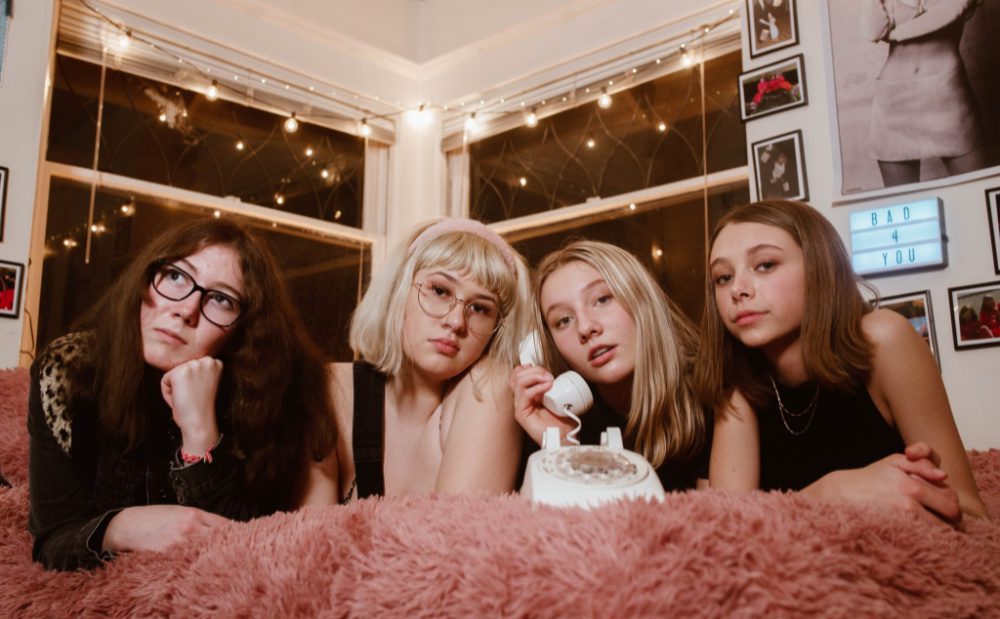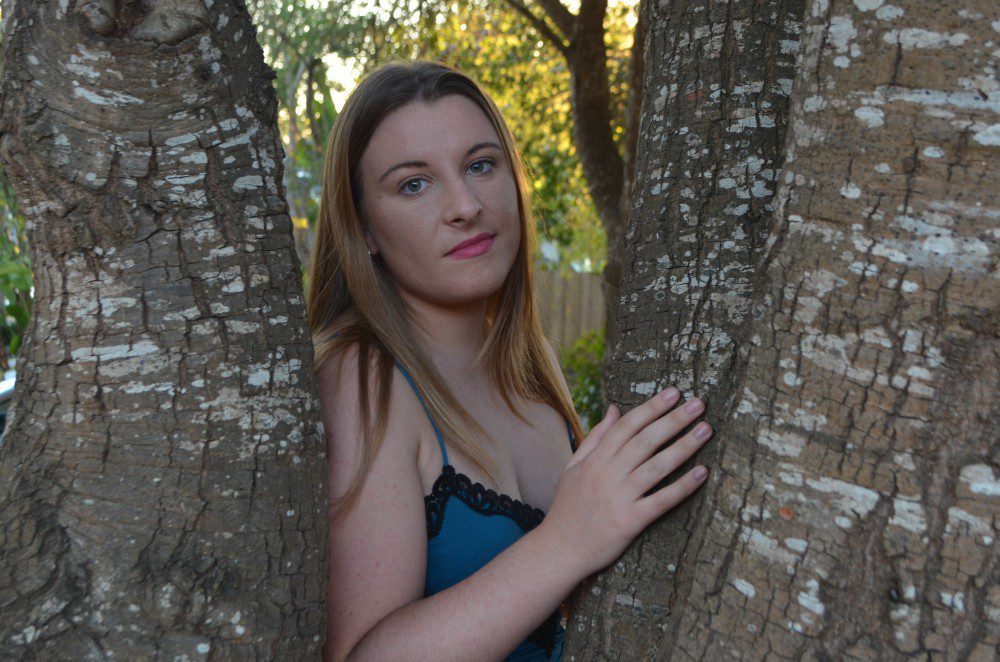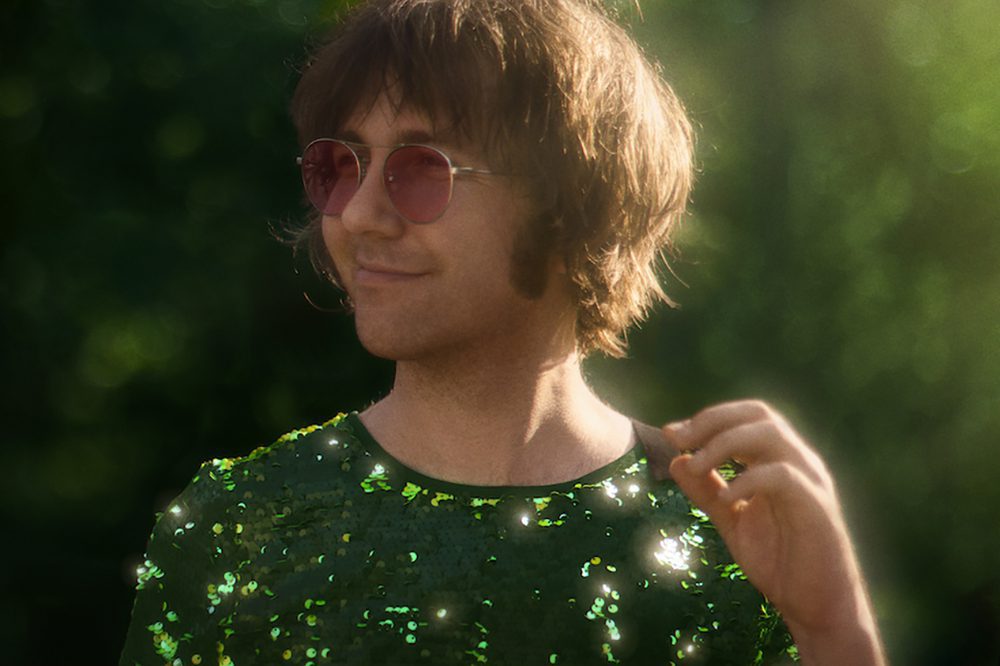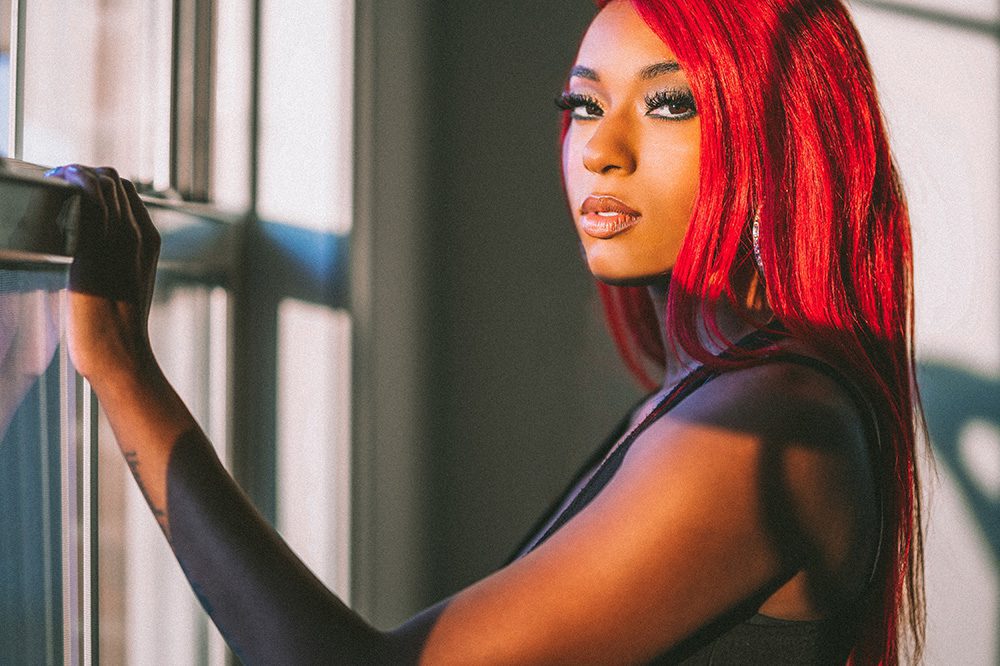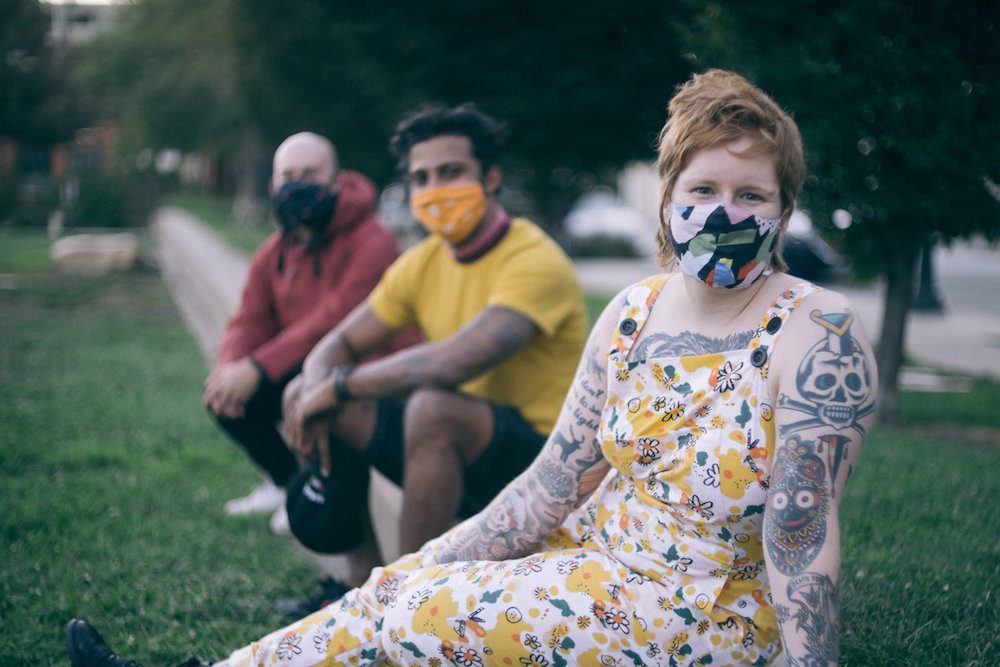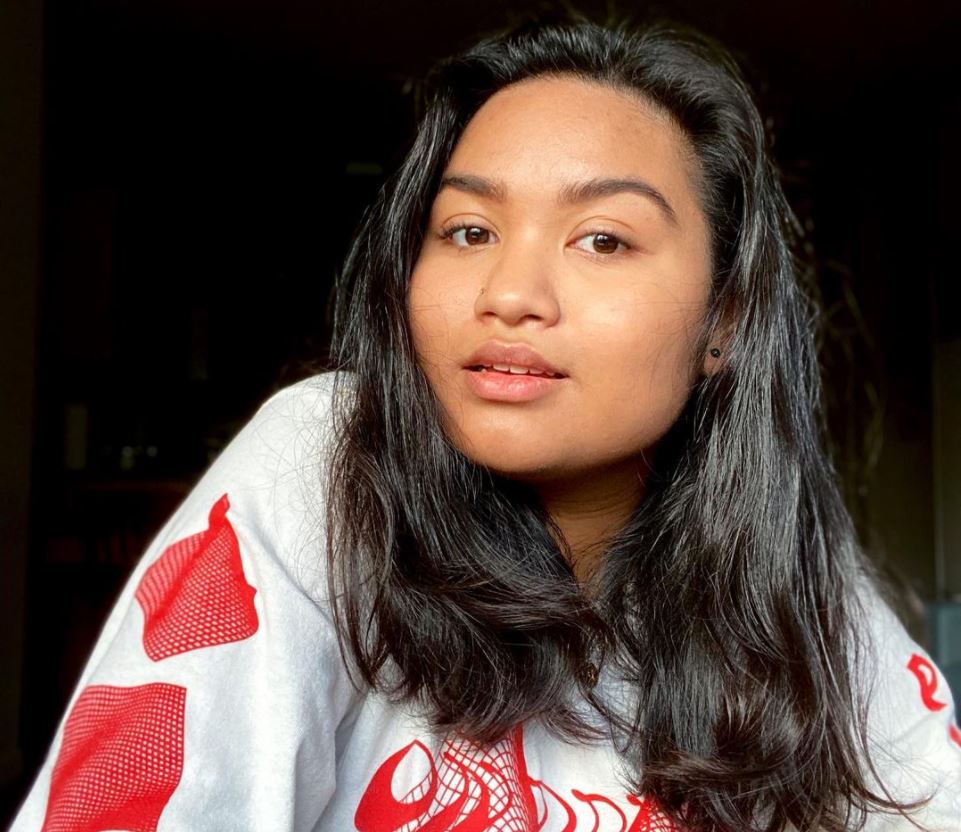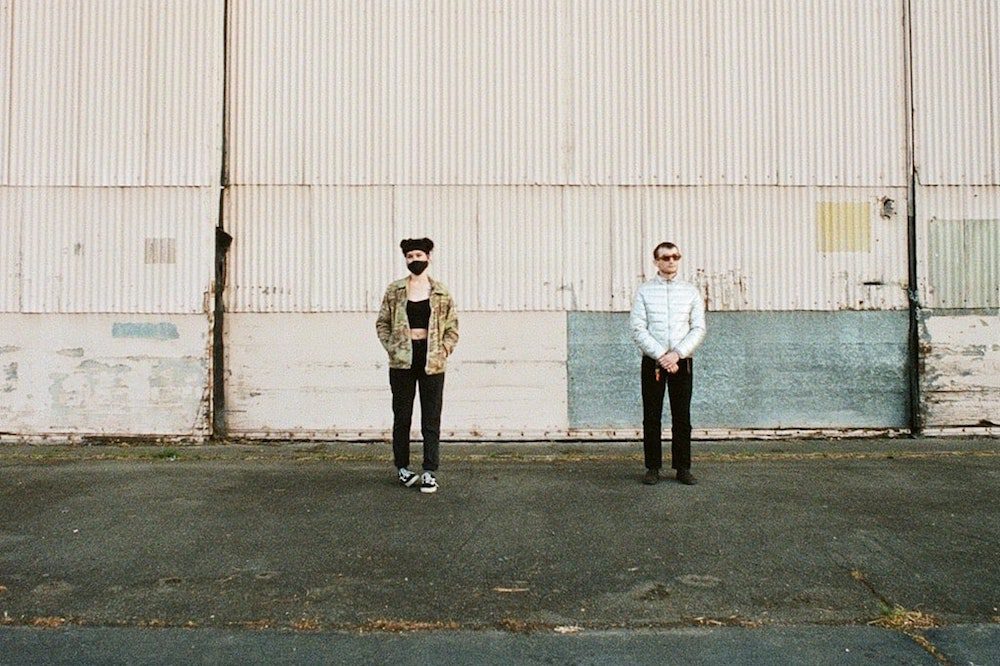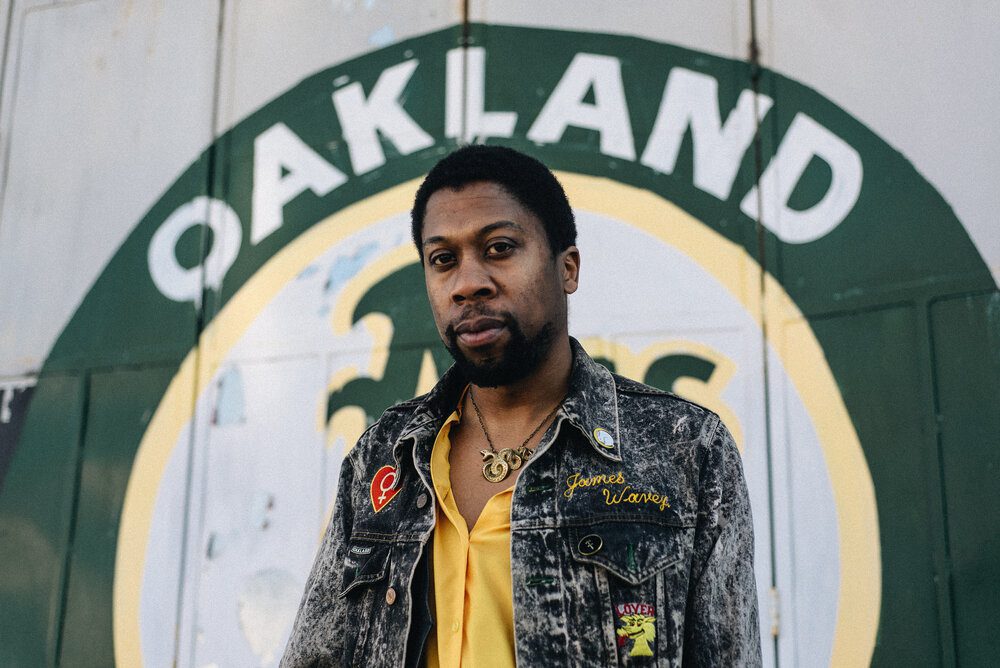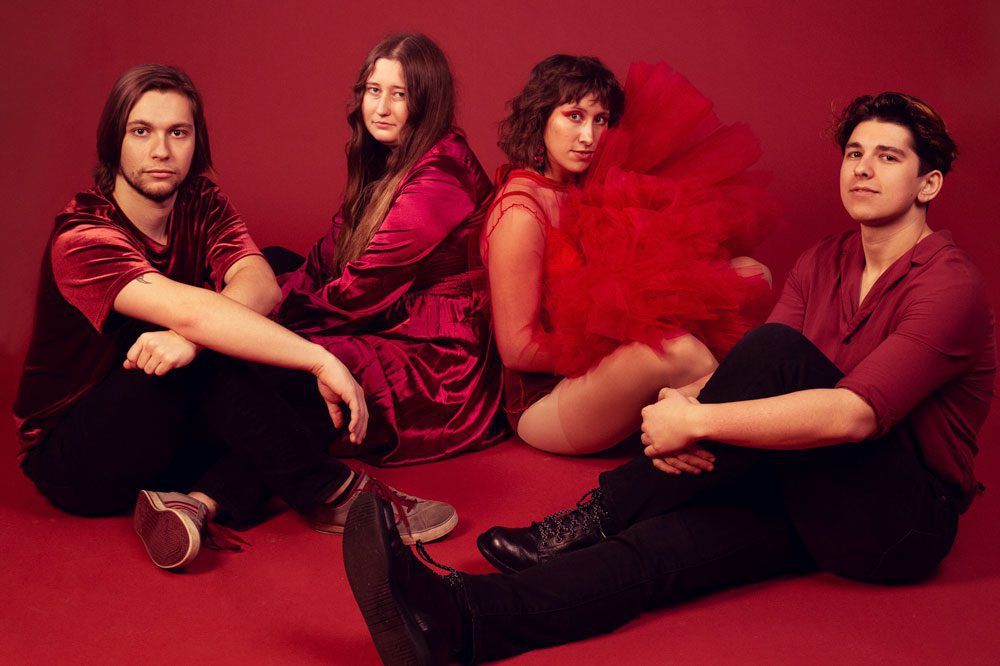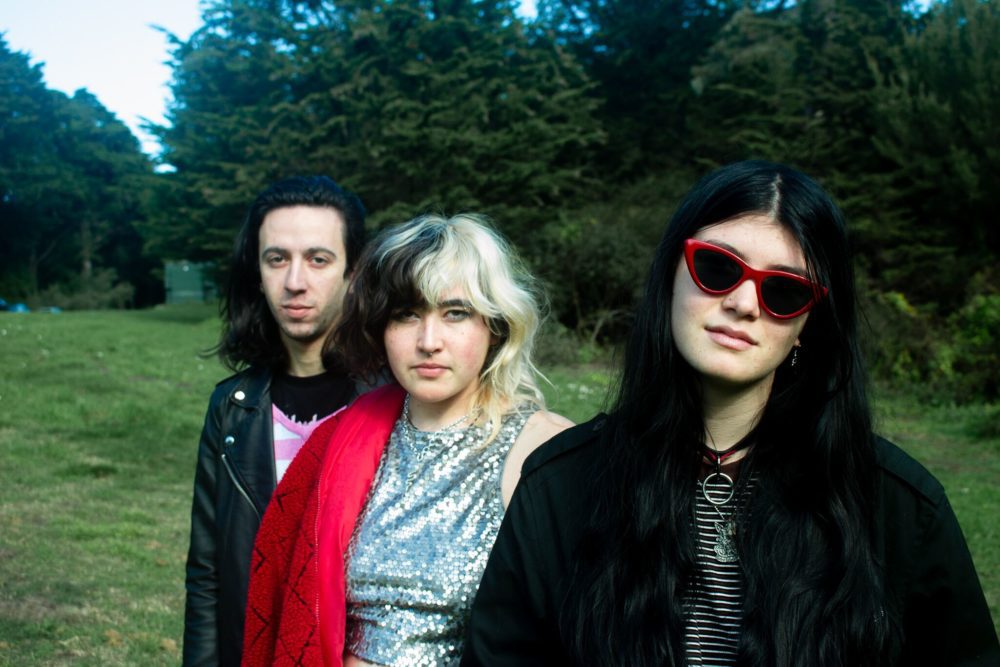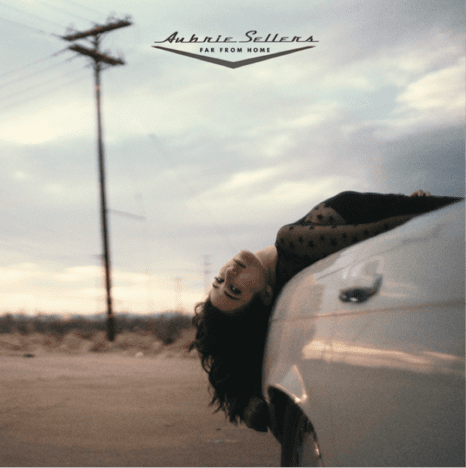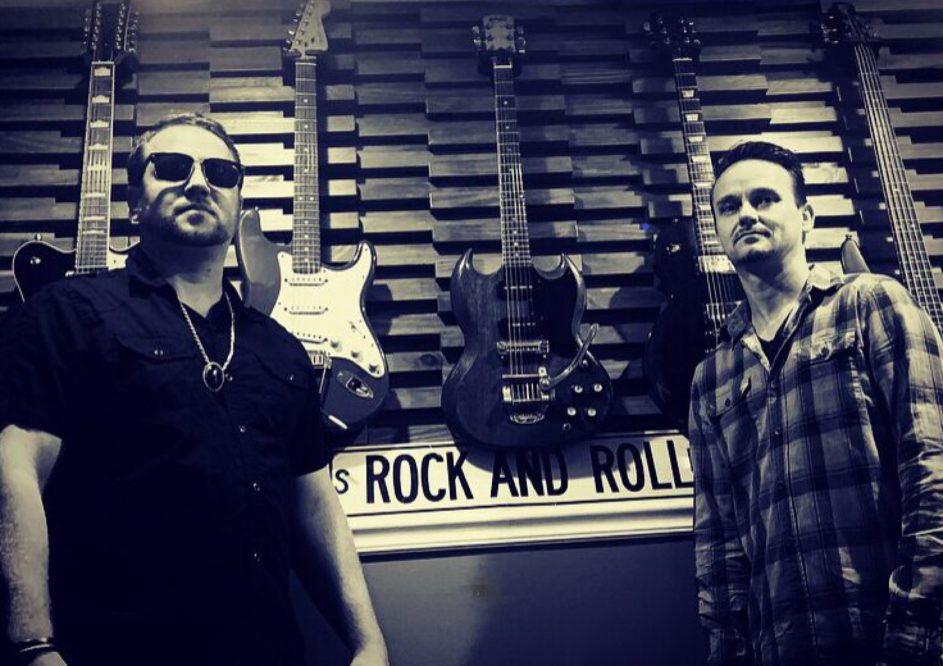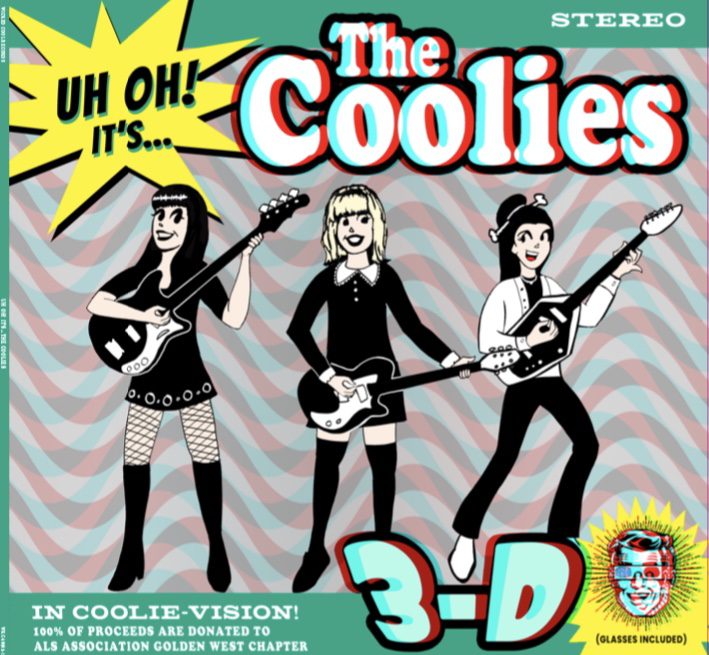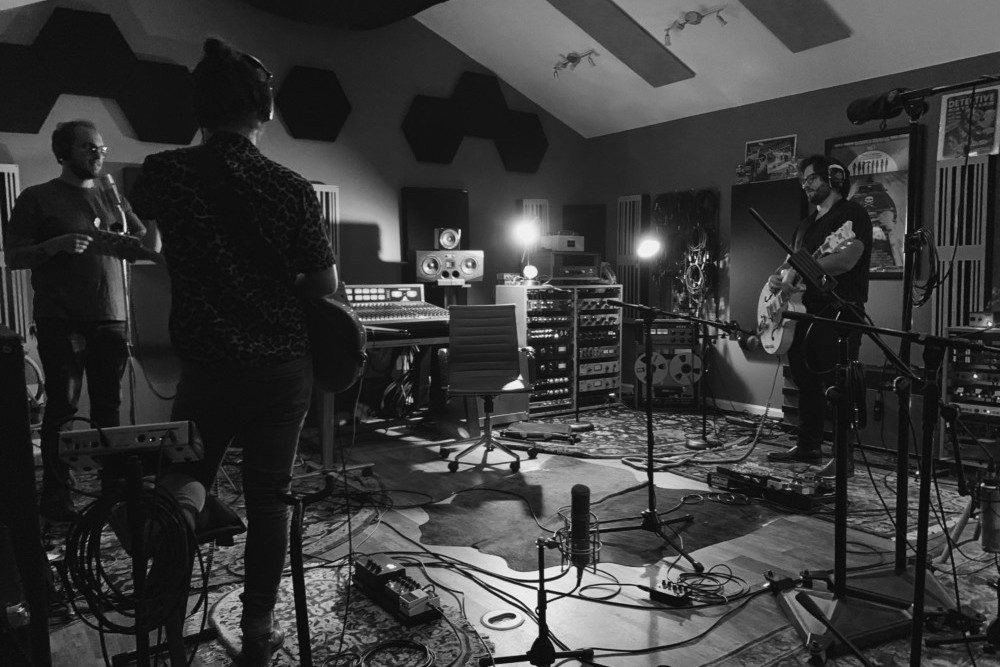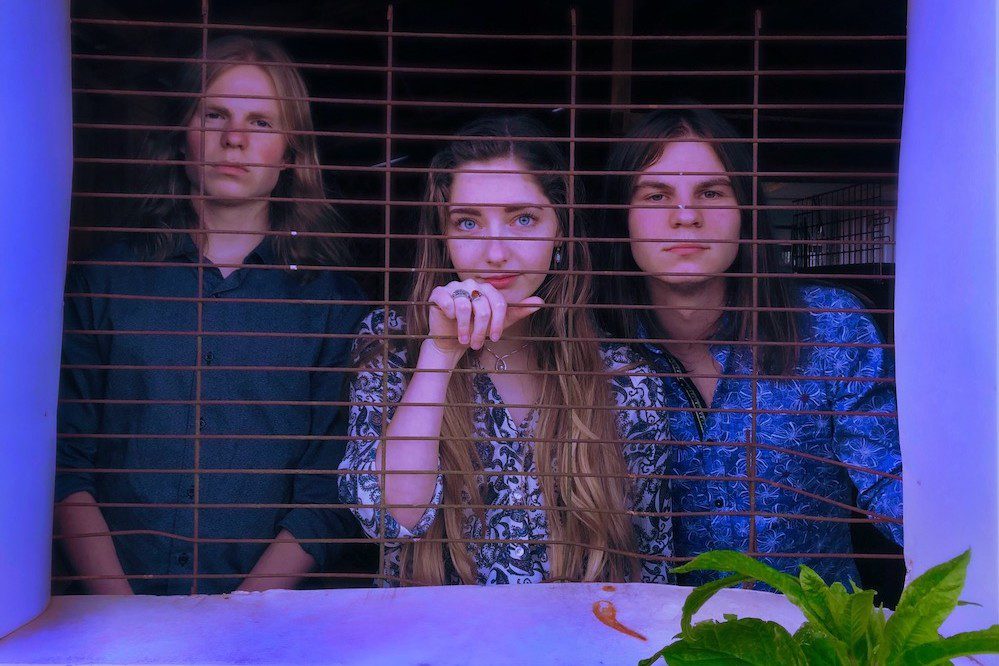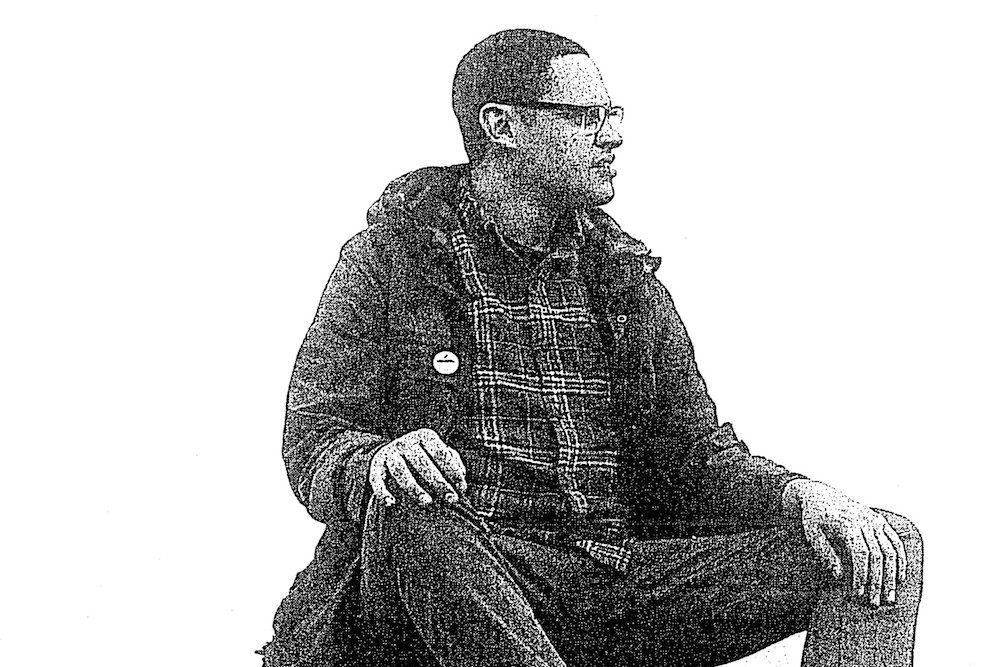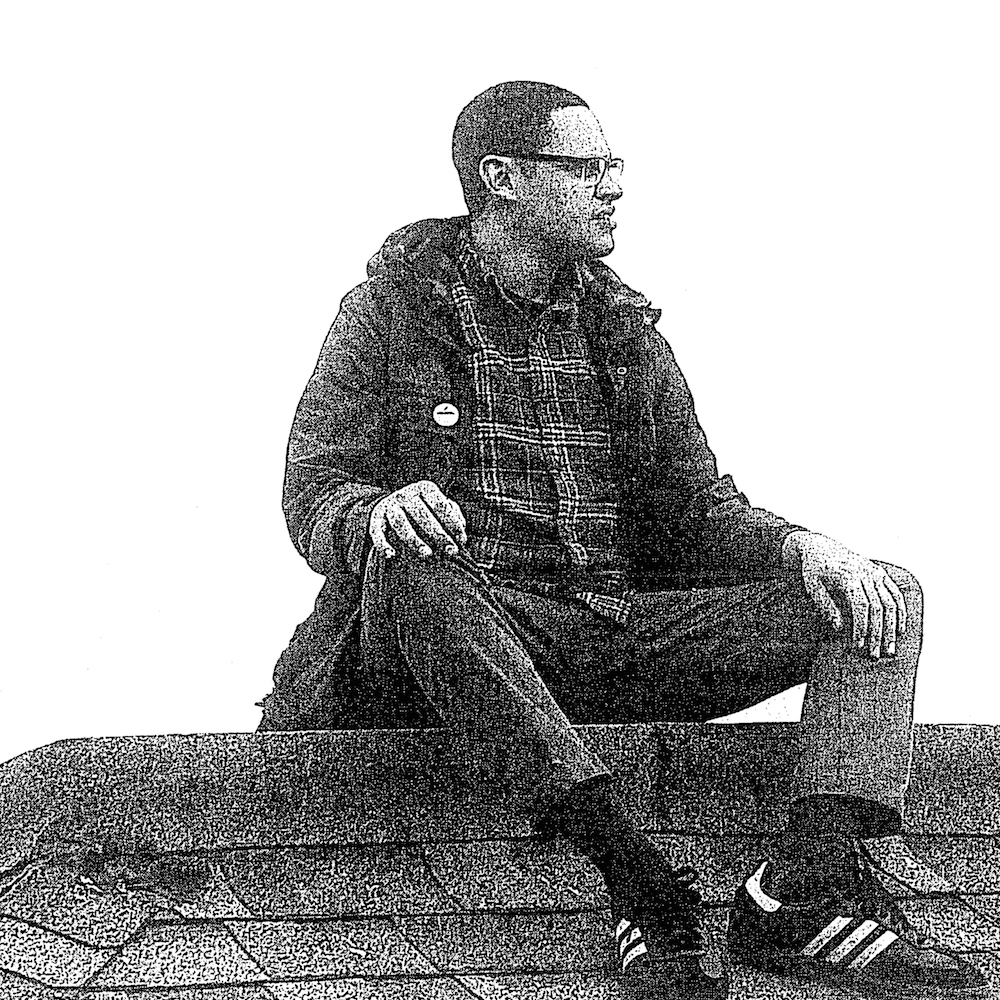Jackson+Sellers Bring Their Cosmic Connection to Debut LP Breaking Point


Jade Jackson and Aubrie Sellers met like many people do in the era of social media — sliding into each other’s DMs. But they established an artistic connection long before the message was sent.
The seed was planted at AmericanaFest in 2019 in Nashville when they were performing at the same showcase, the sound of Sellers’ voice stopping Jackson dead in her tracks. “I was walking into the showcase we were playing and I’m like, ‘My ears are happy. I hear something I really like,’” Jackson recalls to Audiofemme. “I look up and it was Aubrie and she was such a badass on stage. She owned the stage, you just had to stop and look. I became a fan instantly.”
Following the showcase, Jackson began digging into her future bandmate’s music, citing Sellers’ voice as “my favorite voice I’ve ever heard.” In the process of gathering songs for her solo album at the time, Jackson felt compelled to share one in particular with Sellers, called “Hush.”
“I had written this song for my sister that I really envisioned some strong female harmonies on, and Aubrie’s vocals came to the forefront of my mind. I was like, ‘That’d be really cool if she did these harmonies,’” Jackson remembers. “It was a shot in the dark.”
Jackson’s instincts were correct, as Sellers “immediately loved” the song and the two decided to meet at Sellers’ house in Los Angeles. What started as a simple session to discuss the potential of Sellers lending her harmonies to “Hush” turned into an all-nighter where they recorded several demos and sent them to Jackson’s label, ANTI- records, in hopes of releasing a single. Impressed by the caliber of their work, the label instead requested a full-length album, resulting in the release of their debut LP Breaking Point on October 22. The album introduces the newly formed duo, Jackson+Sellers, to the world.
“Everything happened really fast and we were fast friends. The spirit of the record was a very quick and seamless progression of things,” Jackson says. “Nothing was forced. We didn’t try and aim for a certain genre. We just became friends and created music, and that’s this spirit of this record. It was so much fun and you can feel that when you listen to it. I think it was really magical in that way.”
“We didn’t even know what we were doing. But we got together and really hit it off personally, too, which I think was a big factor. Not only did we like each other’s songs, but… it felt like there were a lot of weird synchronicities,” adds Sellers. “I It felt cosmic.”
That cosmic connection arose after years of building their own solo careers. Jackson has released two albums under ANTI- and Sellers, the daughter of country legend Lee Ann Womack, has been a mainstay in the Nashville scene with her blend of grunge rock and country that’s scored her nominations at the Americana Honors and Awards. Breaking Point arrived at a time when the singers needed it most, both off the road and at home as a result of the COVID-19 pandemic, the lack of touring allowing them the space to create something new. It also provided a refreshing opportunity to have a musical partner after years of going through the process alone, both grateful to have a teammate in the grueling music industry.
“Having been a solo artist and feeling alone being a front woman, this is a very male dominated industry and touring and doing everything, feeling isolated in press and all these things like you’re on your own. Sometimes it was really hard to connect with people, being a sensitive person and living an extroverted lifestyle,” Jackson explains. “When Aubrie and I met, we were of the same stripe. We connected on cosmic levels. We’re both sensitive, we’re both introverted and now all of a sudden we’re standing on stage doing this thing together. I have someone to talk to about it, I have somebody to lean on. I have somebody to be my friend up there who actually knows what I’m going through because they’re going through the same thing, and I really appreciate that. I think that’s one of the most special parts of this whole journey.”
“There is something to be said for having someone do literally everything with you as the co-front person. Getting to do things together like that is super amazing. I’m very introverted, so I’ve really enjoyed doing all this with someone else,” expresses Sellers. “We’ve faced plenty of challenges in our solo careers, but with this record and this project, everything really fell together in a magical way.”
The duo carries this fellowship into each of the album’s edgy rock-leaning melodies wrapped around their dreamy voices. The two were intentional about selecting songs they naturally gravitated to, including “Hush,” the bluesy, yet gentle ballad they recorded on that fateful night in L.A. The song marries the captivating nature of both their voices on the unconventional lullaby: “Her soul’s slipping/Her mind’s drifting/Like a ship letting go of her ropes/Sand’s shifting, her hand’s gripping/She just can’t let go/Hush little darlin’/Don’t you cry.”
“I tend to write pretty simple, straightforward, and I’ve been drawn to that kind of music in the past. ‘Hush’ is that way, but it’s also very poetic in a way,” Sellers says of the track written by her bandmate. “I was really drawn to the general vibe and emotion of the song.”
Meanwhile, Jackson is a fan of the Sellers-penned “Fair Weather,” which evokes a sense of longing as they acknowledge “As fast as a cold wind blows/Fair weather comes and it goes.” “It really filled my cup and I felt like it was written about me and for me, like my ego is being stroked,” Jackson observes. “It conjures up so much imagery in my mind that I really love.”
Breaking Point is a masterclass in what happens when two people follow the creative muse. The duo admits they’re unclear if Breaking Point is a one-off project or the beginning of a long partnership. Regardless, they’ll continue to allow their instincts to guide them, and hope others will do the same. “What that boils down to is being in a creative space where you can be experimental and free and yourself and not care what other people think and voice your opinions. That’s what this record was. Create to create and have fun,” Jackson proclaims, stating that “all the stars were aligned” when making this project. “It’s not even so much taking a risk, it’s just following your inner creativity and your true creative self and expressing your voice and see what happens. That’s what I did for this record and it’s my most favorite, cherished project I’ve done.”
“We were very much creating to create. I think that came out and it was what was so fun about it,” reflects Sellers. “I hope [listeners] feel that. Jade and I both write songs as an outlet for ourselves and our own emotions, but also the reason we share them with people is so they’ll connect with them. I’m at a point in my journey where I’m wanting to create to create, and I think this was such an amazing experience for both of us because of that spirit. I want to bring that idea to the world and hope that people also take that from this.”
Follow Jackson+Sellers on Instagram, Twitter, and Facebook for ongoing updates.




